Bengaluru, Apr 14: Former Karnataka chief minister B S Yeddyurappa today assumed charge as state BJP President and set an ambitious target of having an absolute majority by winning 150 seats in the 224-member House in the 2018 Assembly polls.
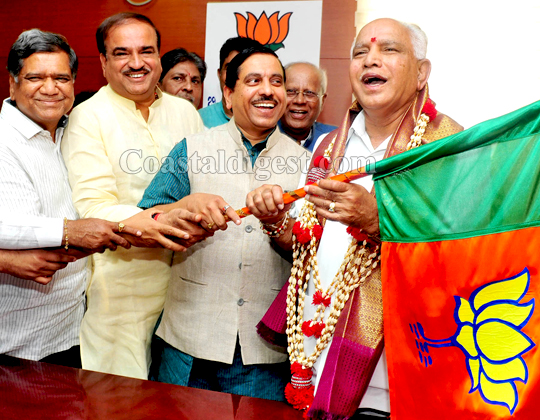
Taking over the mantle of Presidentship for the fourth time, he termed the Congress a "sinking ship" and asked his party men to work hard to realise Prime Minister Narendra Modi's dream of "Congress-free India" by achieving the goal of "Congress-free Karnataka".
"I assure you, I have no personal matters here on...I will not let you sit silent, we all party workers have to put in our best efforts. At present we have 47 MLAs, we have to make it 150," Yeddyurappa, known for his combative style of leadership, said.
Speaking at a party event organised to commemorate 125th birth anniversary of B R Ambedkar after assuming charge, he said in nine districts, BJP has no prominence, in 13 districts it has one MLA and in Bengaluru and Belagavi 21 MLAs.
"Think about it, where we are and where we have to reach...," said Yeddyurappa, who was largely credited for having brought BJP to power in 2008, the party's first government in the South.
The Lingayat strongman, whose appointment was announced by the party leadership on April 8, took charge from Prahlad Joshi, a Lok Sabha member, in the presence of Union ministers Ananth Kumar and Siddeshwar, party's state in charge Muralidhar Rao, Opposition Leader Jagadish Shettar and other state leaders.
Yeddyurappa alleged that Sangh Parivar workers were being killed in Kerala and said, "There is not even a single MLA but despite all this, best efforts are being put in to strengthen the organisation. We will have to take Kerala as an example."
"There is no Kerala-like situation in any of our districts. If we make up our mind and put in efforts and work together we can reach our goal," he added.
Yeddyurappa was forced to resign as Chief Minister in 2011 over graft charges, following which he quit the party to form his own outfit, Karnataka Janata Party, which failed to make a mark except to cause damage to BJP in 2013 polls.
He returned to BJP following the announcement of Modi as party's prime ministerial candidate ahead of 2014 Lok Sabha polls.
Yeddyurappa announced that BJP would contest all 224 assembly seats and said, "There is not much time...Under collective leadership we will work in unity to strengthen the party."
While listing the "failures" of Siddaramaiah-led Congress government, he said, "We will have to make people aware of achievements and programmes of the central government."
Congratulating Yeddyurappa, outgoing President Joshi said his assuming charge on the birth anniversary of Ambedkar was a "good sign...Let us all pledge ourselves to work hard to bring the party back to power under Yeddyurappa's leadership".
Recalling Yeddyurappa's "struggle" for justice for downtrodden and bonded laborers during his early days of politics in Shivamogga, Union Minister Ananth Kumar said it is befitting that he is assuming charge today.
Calling for uprooting of Congress from Karnataka, Muralidhar Rao said under Yedyurappa's leadership, there is no other goal or political objective other than making Karnataka free from Congress' "misrule...We are ready for the fight". Rao also congratulated Joshi for providing "able" leadership to the party during his tenure.
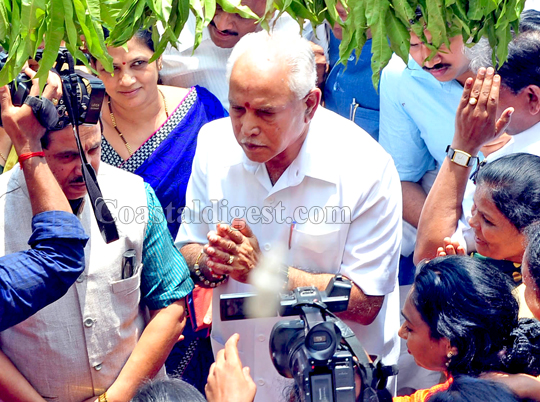
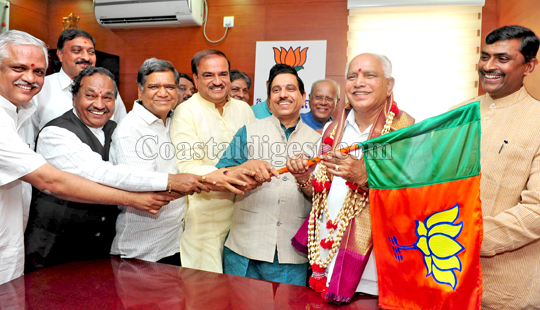
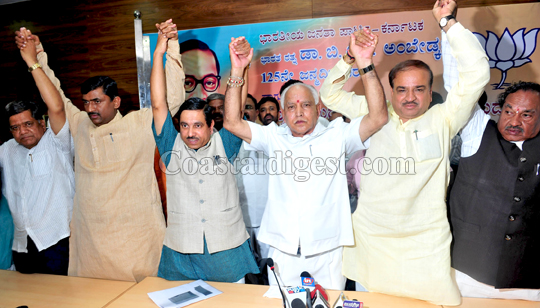
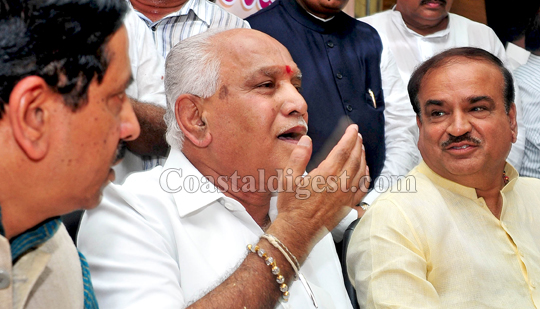
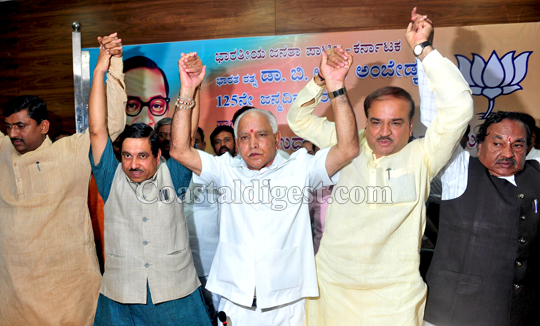
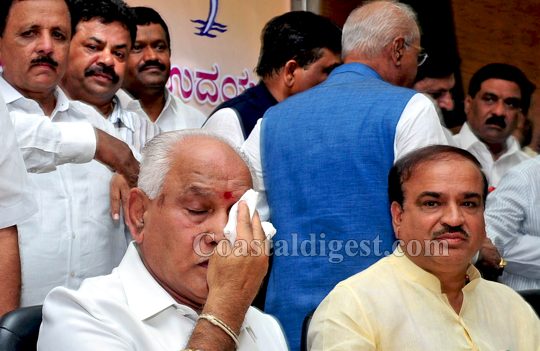
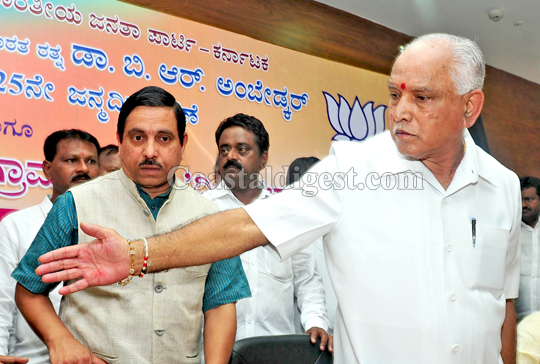
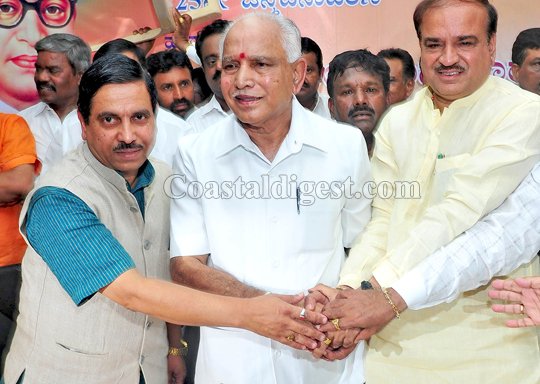
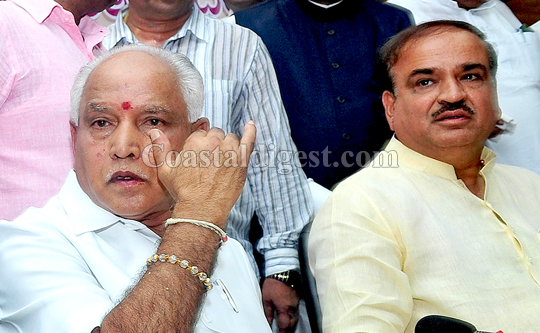
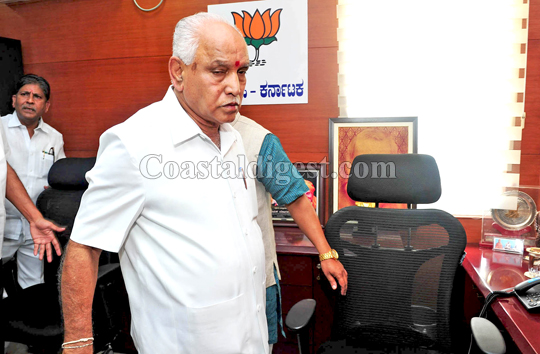
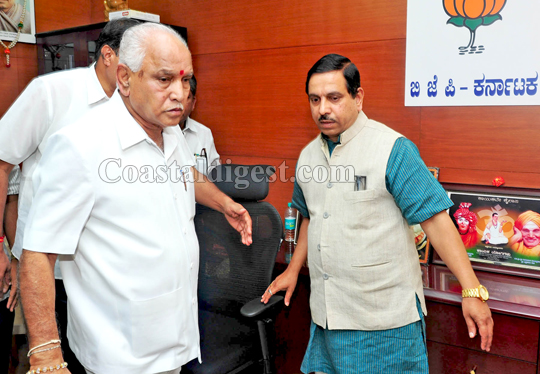
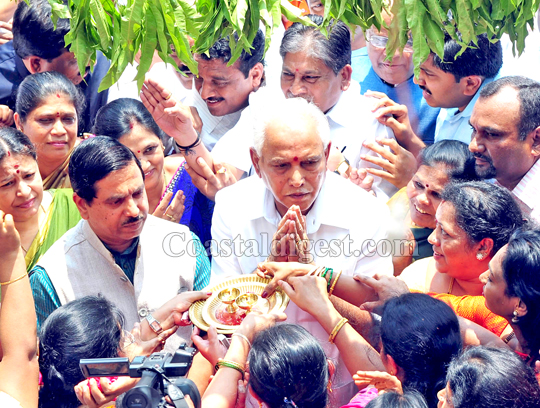
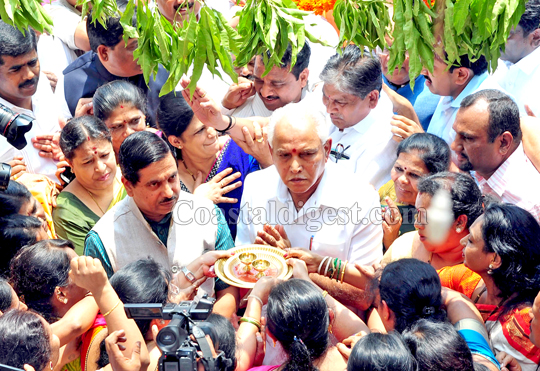
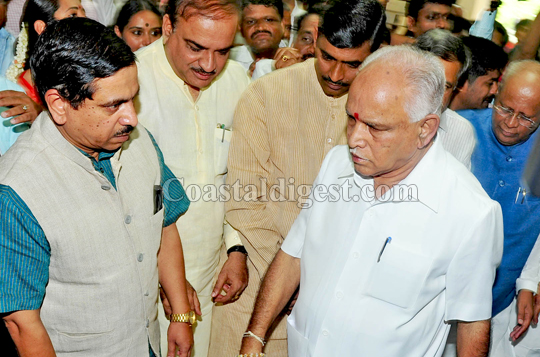





Comments
shobakka missing in the picture....
Do the BJP thinks We the kannadigas forgot
The land looters
The resort enjoyers
The drama acting
When BSY was in office earlier
Big No.....people know your history (corrupt) better....they will give you middle finger this time.....better you give up politics....live with your little bit of respect nicely somewhere in forest area....
could c some strange faces,
chamcha Chumbanacharya .....was bz with bottle business ..
one face is missing here.....can anybody guess....
shobaaaaaaa bega baaaaaaaa....kaadiruve ninagagi.....
Add new comment